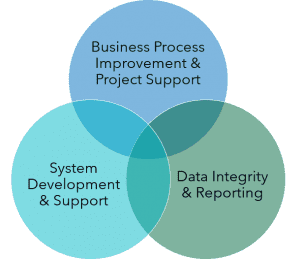UConn OVPR Guidance on Research Related to Semiconductor, Quantum Computing, GAAFET Technology and Additive Manufacturing Items
This website is intended to assist UConn Principal Investigators (PI) and researchers who plan to pursue research in the areas of semiconductor, quantum computing, GAAFET technology and additive manufacturing.
BIS New Interim Final Rule on Quantum and Other Technology
In coordination with international partners and in furtherance of the United States national security and foreign policy interests, the Bureau of Industry and Security (BIS) released an interim final rule on September 6, 2024, revising the Export Administration Regulations (EAR) for certain items, which are categorized under specific Export Control Classification Numbers (ECCNs) on the Commerce Control List (CCL). These items include:
- Quantum Computing Items: Quantum computers, related equipment, components, materials, software, and technology that can be used in the development and maintenance of quantum computers. ECCNs: 3A001, 3E001, 3A901, 3D901, 3E901, 3A904, 3B904, 3C907, 3C908, 3C909, 4D001, 4E001, 4A906, 4D906, or 4E906.
- Advanced Semiconductor Manufacturing Equipment: Tools and machines that are essential for the production of advanced semiconductor devices. ECCNs: 3A001, 3B001, 3C001, 3D001, 3E001, 3D002, 3B903, 3B904, 3C907, 3C908, 3C909, 3D901, 3D907, 3E901, or 3E905.
- Gate All-Around Field-Effect Transistor (GAAFET) Technology: Technology that produces or develops high-performance computing chips that can be used in supercomputers. ECCNs: 3D006, and 3E905.
- Additive Manufacturing Items: Equipment, components, and related technology and software designed to produce metal or metal alloy components, including coating systems, metal additive manufacturing (AM), and AM equipment, utilizing plasma, lasers or electron beams, extreme temperatures, or similar novel technologies not in the public domain. ECCNs: 2E003, 2B910, 2D910, 2E903, and 2E910.
What if your research falls into one or more of these categories?
Send an email to exportcontrol@uconn.edu and provide relevant information about your proposed research and the technologies that it involves along with details about the composition of the prospective research team.
Export Control will review your research alongside you to determine if security provisions need to be put in place to safeguard your work and meet export control regulations.
What does an Export Control review entail?
- Work with the PI and team to review the full parameters of the proposed research to determine whether one or more of the ECCNs listed above is applicable.
- Determine the controls required by the ECCN.
- If controls apply, a Technology Control Plan (TCP) may be required.
- If controls apply, PIs must also fill out a Principal Investigator Acknowledgement Form.
- If controls apply to members of the research team, these individuals must also fill out a Research Affiliate Acknowledgement Form.
- Review the use of a License Exception, if applicable.
- Foreign nationals from some countries may be restricted from working on these technologies absent a General License that includes annual reporting requirements to the Bureau of Industry and Security of the names and personnel information of those working on the project.
- Apply for a license from the Department of Commerce, if required.

